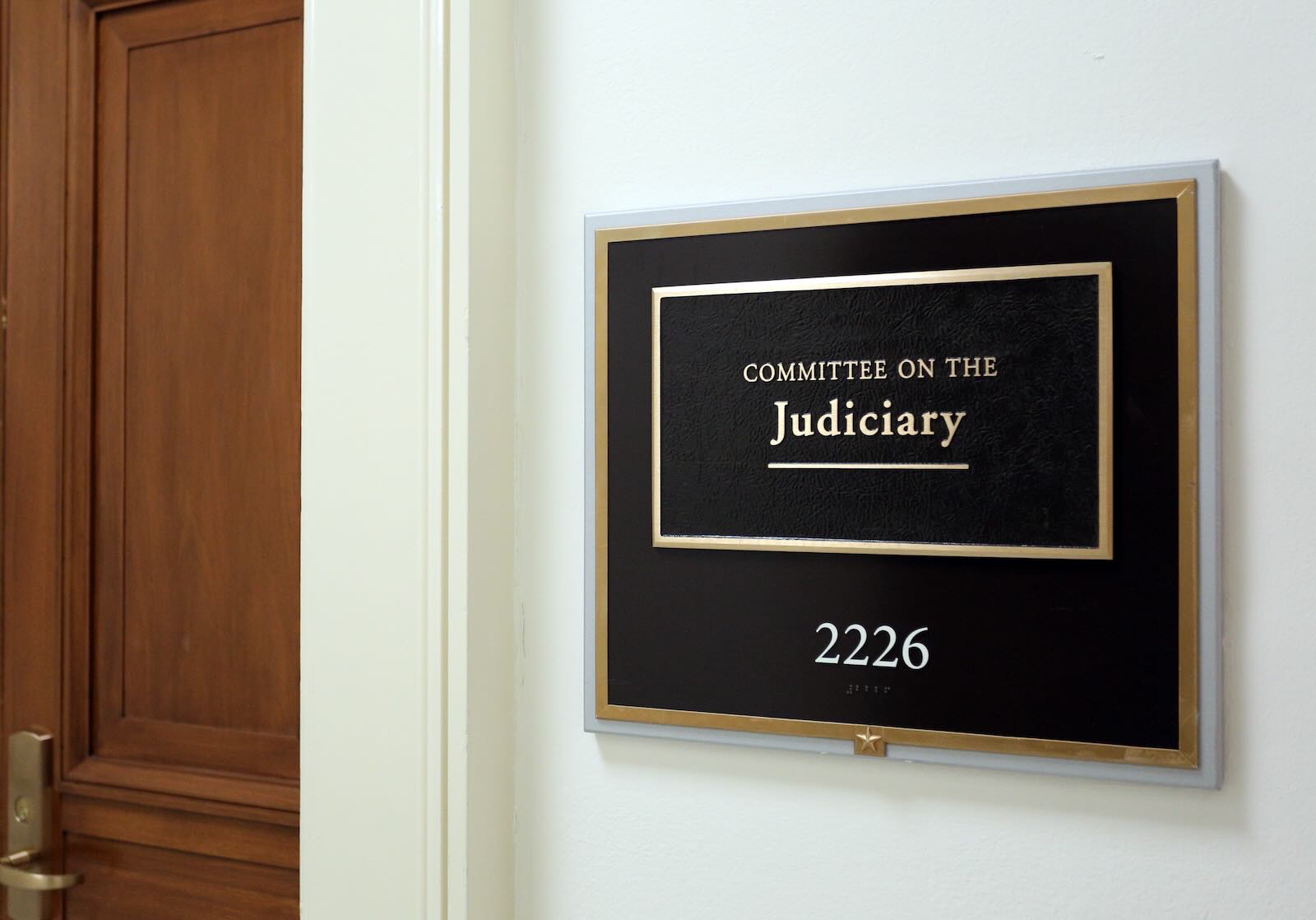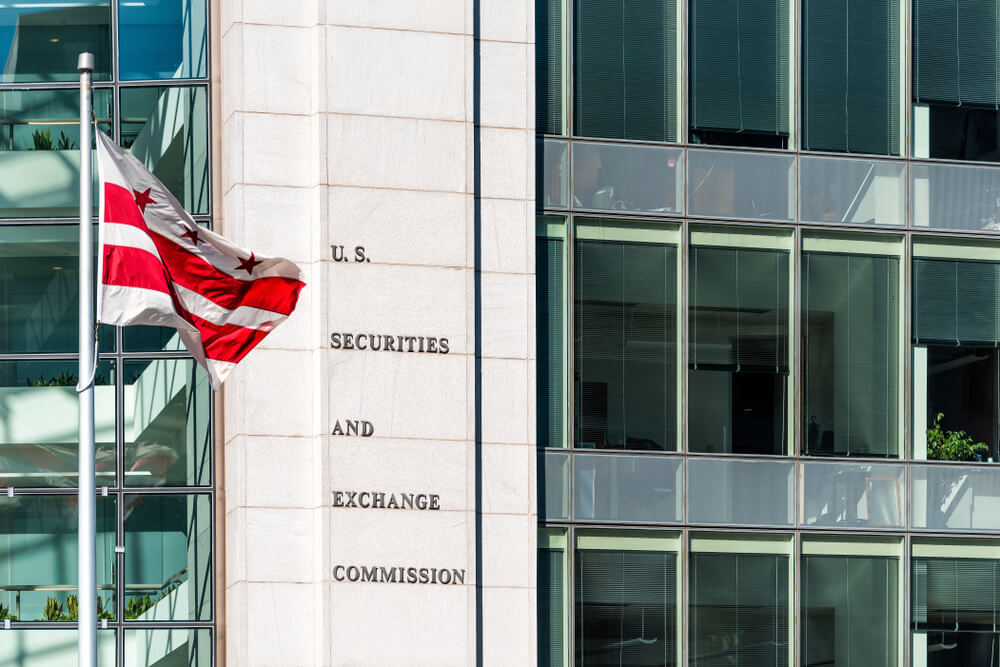Call them The Climate Action 14.
At today’s hearing before the antitrust subcommittee of the US House Judiciary Committee, the Republican majority will present evidence of what it calls a “climate cartel” of more than a dozen major financial institutions, along with their advisors and nonprofit allies.
Their alleged antitrust violations: collusion to force American companies to decarbonize and reach net zero, according to the subcommittee’s majority report released Tuesday.
On the hot seat at the 10:30 am hearing on “decarbonization collusion” will be Dan Bienvenue of the California Public Employees’ Retirement System, the nation’s largest pension fund with $483 billion in assets, along with Natasha Lamb of Boston-based Arjuna Capital and Mindy Lubber of the climate action nonprofit Ceres.
Ceres helped CalPERS organize Climate Action 100+, the investor coalition that engages high-emitting corporations on their climate plans and that is the primary target of the committee’s investigation. The report crows that the subcommittee investigation already has caused major defections from Climate Action 100+, including by JPMorgan Asset Management, State Street and fixed income giant Pimco (the financial institutions cite Climate Action 100+’s ambitions to move from disclosure to action in the transition away from fossil fuels). Hundreds of investors are still part of the group.
In total, 14 organizations have been flooded with threatening letters and subpoenas and called in for interviews over the past 18 months. Together, the organizations produced more than 272,000 documents and 2.5 million pages. The organizations include Trillium Asset Management, BlackRock, State Street, Vanguard, proxy advisors Glass Lewis and ISS, the nonprofit shareholder representative As You Sow, the Net Zero Asset Managers initiative, and the Glasgow Financial Alliance for Net Zero, or GFANZ.
Mark Carney, former head of the Bank of England and an organizer of GFANZ at the global climate summit in Glasgow in 2022, was grilled by subcommittee staff earlier this year.
Decarbonization, the committee charges, reduces output and raises prices, “forcing companies to slash output of products and services that are critical to Americans’ daily lives.”
Legal experts say the antitrust charges lack merit. Effective action on climate change is more likely to lower costs to consumers and to society than it is to raise them. Extreme weather has driven up the price of everything from chocolate to oranges. And it has cost society more than $16 million per hour, according to an analysis by the World Economic Forum. The International Energy Agency says solar power has become the cheapest source of electricity ever.
And for the past six years in a row, the US has produced more crude oil than any nation, ever, according to the US Energy Information Administration.
A recent analysis by the law firm Jenner & Block concluded that investors and companies that make independent investment choices “are not violating fiduciary duty and are at negligible risk for antitrust claims” by making climate commitments or joining efforts such as Climate Action 100+. The law firm Wilson Sonsini similarly determined that “many common forms of shareholder activism do not raise any substantive antitrust risks, because they do not constitute agreements under antitrust law, nor do they result in any meaningful harm to competition.”
“When businesses work together to protect, for example, consumer privacy, to safeguard natural resources, or to share information about the impact of our changing climate change and how they are responding to it, that advances public welfare and does not offend the antitrust laws,” Colorado Attorney General Phil Weiser explained recently at New York University’s School of Law.
“If you give in to intimidation that’s not based on a true legal analysis, then you’re inviting more of this activity,” he said.
In a recent guest post on ImpactAlpha, As You Sow’s Andrew Behar penned an open letter to the “alleged co-colluders.” The one thing the subcommittee got right, Behar said, “If we work together, we indeed do have the power to correct this historic threat to the global economy and to future generations.”
In response to the subcommittee’s majority report, Behar said, “All they have to show for this waste of taxpayer money is a report demonstrating that shareholders really care that the companies in their portfolios reduce material risk for all stakeholders and that they seek opportunities for long-term sustainable growth.”
Attack on DEI
The antitrust investigation is part of a broader, coordinated campaign by conservative strategists and some Republicans to snuff out efforts to redress racial inequities and the rise in environmental, social and governance investing. Emboldened activists on the right have sued the nonprofit arm of Atlanta-based Fearless Fund over a program that awarded grants of $20,000 to Black female entrepreneurs.
In a 2-1 ruling last week, a federal appeals court ruled the grant program likely violated the federal Civil Rights Act of 1866. That reversed a lower court ruling in the case brought by the American Alliance for Equal Rights, led by Edward Blum, the same conservative legal group that brought the suit that led to last year’s Supreme Court ruling striking down affirmative action in college admissions.
This week, Fearless Fund’s Arian Simone called for President Biden to issue an executive order “to protect DEI and the right to fund specific marginalized groups if and when racial disparities exist.”
Similar lawsuits have also targeted other small grant programs designed to boost small businesses led by founders of color. In April, Blum’s group filed suit in Texas against the nonprofit arm of Founders First, the San Diego-based business lender. Founders First’s Kim Folsom declined to comment on the suit.
Last month, a federal judge dismissed a suit against Liftfund Inc., a Texas-based nonprofit community development financial institution enlisted by a county in Texas to run a $10 million small-business grant program. It turns out the rival company that charged racial discrimination hadn’t filed the required paperwork to be considered.
Yet another case was also dismissed, against a grant program run by Hello Alice, a Houston-based small-business fintech that provides funding to Black entrepreneurs. The judge said plaintiffs in that suit, filed by Trump advisor Stephen Miller’s American Legal Foundation, lacked standing.
“These lawsuits are part of a continued pattern among opponents of ESG, and more recently DEI, who seek to sow confusion and disrupt the ability of investors to make decisions that are consistent with their fiduciary duty,” said Fran Seegull of the US Impact Investing Alliance, which is tracking the legal challenges (disclosure: the Alliance supports ImpactAlpha’s Policy Corner).
“The cases are pursued in service of a culture war that distracts from the real issues affecting Americans, like widening inequality and limited access to economic opportunities. Meeting the needs of Americans requires that we, as impact investors, confront these challenges head on rather than bowing to the intended chilling effect of these insidious lawsuits,” Seegull told ImpactAlpha.
Fewer burgers
The Judiciary Committee’s report, “Climate control: exposing the decarbonization collusion in Environmental, Social, and Governance (ESG) investing,” picks provocative quotes from the more than 2.5 million pages of information it examined.
The report summarizes the groups’ collusive actions as “efforts to seek climate risk disclosure, actions to reduce greenhouse gas emissions, and enforcement” of disclosure and reduction commitments from corporations.
So?
In her prepared remarks, Ceres’ Lubber said, “Climate change is an issue that presents both serious financial risks and opportunities for investments and job creation in the rapidly emerging clean energy economy. Investors and companies are acting on climate because the business case is compelling.”
She defended Climate Action 100+, which Ceres spearheads. “Climate Action 100+ investors are independent in every way,” she said. “Each investor acts separately and in the best interests of their shareholders, beneficiaries, and clients. Addressing climate-related risks is 100% in line with investors’ fiduciary responsibility.”
The report makes entertaining, if exasperating, reading. To tackle emissions from agriculture, including emissions intensive livestock farming, the committee points to calls for a shift to “a plant-rich diet” and a reduction in global per capita meat consumption to “around 1.5 burgers per person per week.”
“The climate cartel has declared war on the American way of life,” it declares, citing a single email invoking a war analogy by William Gridley, an investment professional unaffiliated with any of the 14 groups (and an occasional ImpactAlpha contributor).
Among the catalog of supposed sins are statements that “no new oil and natural gas fields are needed in the net zero pathway,” much less new coal plants, as scientists including those at the International Energy Agency and the Intergovernmental Panel on Climate Change have determined.
Many of the exhibits included in the report’s more than 2,000-page appendix suggest less a cartel than an uncoordinated and even competitive relationship among climate-focused groups. In one email exchange, Climate Action 100+ officials fretted that they were seen as “mainstream,” while grassroots climate investor activist groups are perceived as “the ones at the vanguard and are the ones responsible for many of the recent wins.”
Chilling effect
The coordinated campaign and legal threats have had a chilling effect.
The Net Zero Insurance Alliance, an insurance-focused group under the GFANZ umbrella, lost key members before being disbanded altogether this spring. The defectors, including Munich Re, Axa, Lloyd’s of London and Allianz SE, cited concerns about legal risks. A new climate-focused group for insurers, the Forum for Insurance Transition to Net Zero, will be hosted by the UN Environment Programme.
ESG data services including Sustainalytics and MSCI have been quietly laying off employees. And the Securities and Exchange Commission watered down proposed climate disclosure rules amid pushback, and has delayed a long-awaited human capital disclosure proposal.
The committee says it will continue to “examine the adequacy and enforcement of current antitrust laws to determine whether legislative reforms are necessary to protect competition in the American economy.”
A CalPERS spokesperson told Reuters the pension fund is proud to participate in initiatives like Climate Action 100+. “This is not collusion; it is collaboration.”











